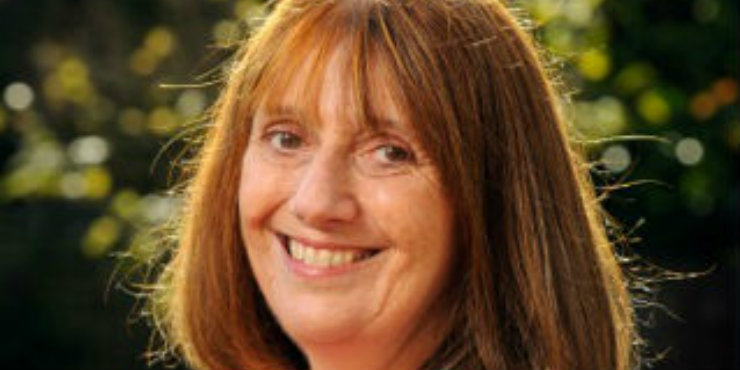
Kate Ellis. Image © Matthew Pover
Kate Ellis is a British author particularly known for her South Devon based crime novels featuring DI Wesley Peterson. She is also the author of a series of books about Joe Plantagenet as well as many short stories for crime fiction anthologies and magazines. Her latest book, Dead Man’s Lane, has just been published.
1. Who were your literary influences and heroes as you were growing up?
As a child I loved mystery stories and was addicted to Enid Blyton. From there I progressed to Agatha Christie and other writers from the Golden Age of crime fiction such as Ngaio Marsh, Josephine Tey and Dorothy L. Sayers. I also had a taste for history, Jean Plaidy being a particular favourite.
2. Your next book is Dead Man’s Lane. Can you give us a preview of what we can expect?
In Dead Man’s Lane, Wesley Peterson encounters a particularly difficult case. Strangefields Farm has a very sinister history; in the 1990s an artist called Jackson Temples lured young women there to model for disturbing works of art. Some of those girls never left the house alive.
Now, decades later, Strangefields is to be transformed into a holiday village but the developer’s hopes of its dark past being forgotten are dashed when a skull is found on the site. And when a local florist is found murdered in an echo of Temples’ crimes, Wesley fears that a copycat killer is at large, especially when another brutal murder in a nearby village appears to be linked.
As Wesley’s friend, archaeologist Neil Watson, uncovers the secrets of Strangefields’ grisly past, it seems that an ancient tale of the dead returning to torment the living might not be as fanciful as it seems. And Wesley needs to discover who’s behind the recent murders before someone close to him is put in danger.
3. When Wesley Peterson first appeared in The Merchant’s House (1998), did you ever think you would still be writing about him years later?
As soon as I’d finished The Merchant’s House I started on the second in the series, The Armada Boy, so I certainly knew that I wanted to keep writing about Wesley and Gerry. However, I don’t think I could have foreseen that they’d still be investigating crimes in South Devon so many years later. I still love writing the books, blending mystery with history, archaeology and plenty of twists and turns.
4. You also write the Joe Plantagenet series, set in Eborby, Yorkshire. How did that series come about, and what attracted you to Eborby/York as a location?
I’ve written five books in the Joe Plantagenet series but I’m afraid I’ve had to put those books on hold for a while to pursue other projects. This slightly supernatural series came about when my younger son was studying archaeology at York University. When I visited him one weekend we ended up going on a ghost walk (York is reputed to be one of the most haunted cities in England) and some of the stories told us by the guide provided the inspiration for the series.
I still love York and go there whenever I can, but recently I have been very busy working on my new trilogy set in the north of England in the aftermath of the First World War (featuring Scotland Yard detective Inspector Albert Lincoln, a man damaged by both war and personal tragedy). The first book in this trilogy, A High Mortality of Doves, was published in 2016 and the second, The Boy who Lived with the Dead, is shortly out in paperback. After I’ve completed the third and final book in the trilogy I’ll have to decide whether to write another Joe Plantagenet book, but no decision has been made yet.
5. What is on your ‘to read’ list?
I’m about to start Gallows Court by Martin Edwards and after I’ve finished that I’ll be reading To Dream of the Dead by Phil Rickman. I’m also intending the read Bring up the Bodies by Hilary Mantel (recently purchased from a local charity shop). Reading is one of my favourite pastimes (mainly crime of course).
6. Has a book ever changed your life or made you think differently?
A book that has always influenced me is The Daughter of Time by Josephine Tey, a historical investigation conducted in the present day. In my own books there’s always a historical case going on in parallel to Wesley’s present day inquiry.
7. Do you have a message for your many readers in Suffolk libraries?
To value your libraries and make full use of them. Where else can you embark on so many adventures and be transported to other times and locations with so little effort or cost? I’m a great fan of libraries myself and can often be found choosing books in my local branch.
I’m very much looking forward to visiting Suffolk in June to take part in Slaughter in Southwold so I hope to meet a lot of readers there.
8. Can you tell us one thing your readers may not know about you?
I’m a bellringer at my local church (inspired to take it up when I read Dorothy L. Sayers’ The Nine Tailors!)
